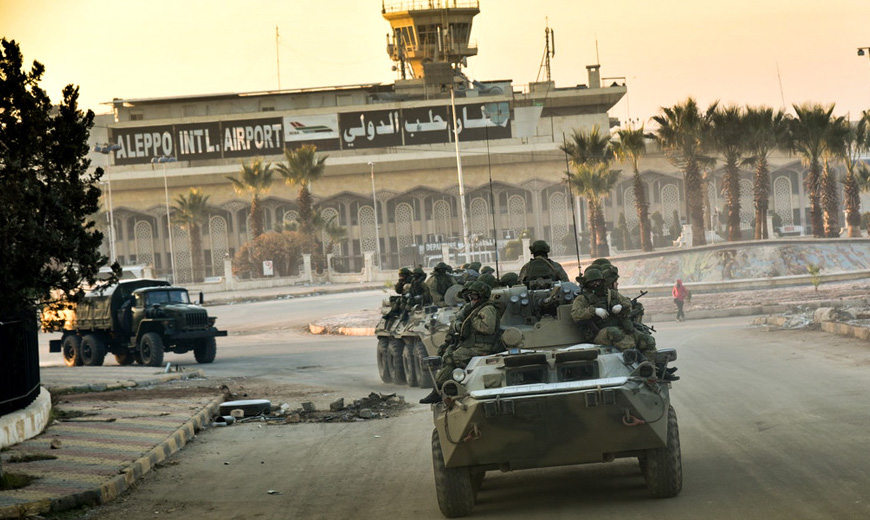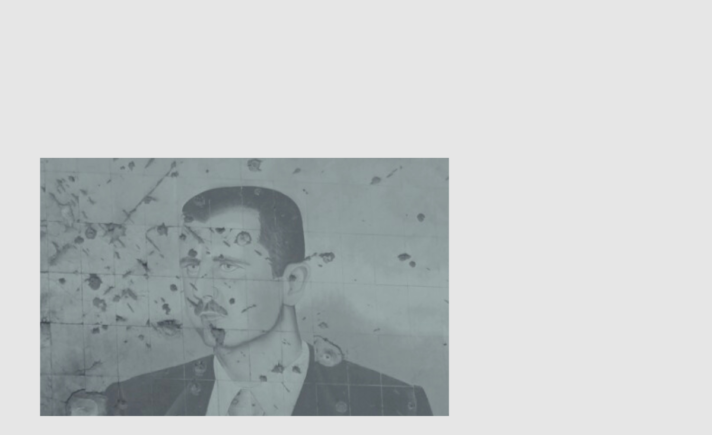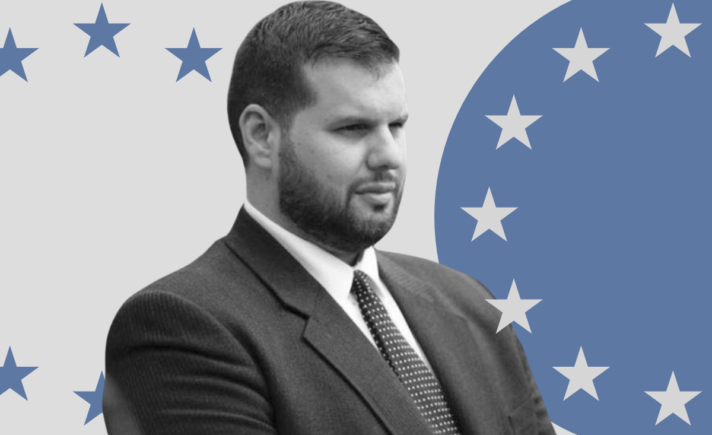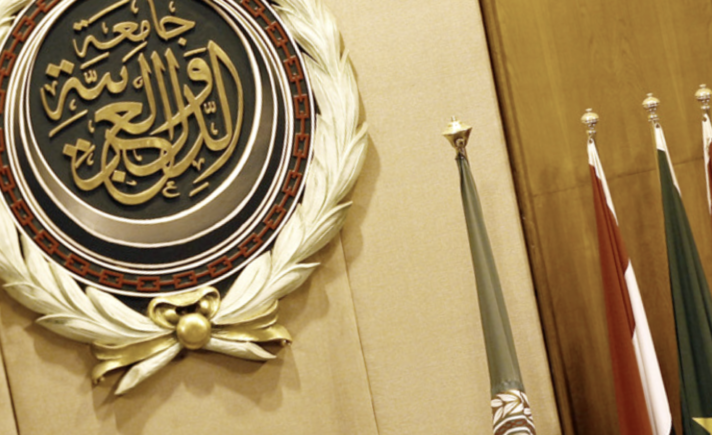They told me I had cancer in my tongue. Just like that. I don’t know how. Neither did they. I toured Aleppo’s hospitals one after another: al-Razi; Salloum; al-Jamia; al-Salam. After various high-tech tests were conducted with laryngoscopes, X-rays, and other equipment, they also found a second lump in my throat. “He who seeks the Lord will find him”: this seems to be the oncologist’s motto.
After seeing the confusion and vacancy on most of the doctors’ clown-like faces; and after my own suspicions consumed me; and after I started feeling the cancer itself scratching my tongue and throat with every bite of food or sip of water, nagging me asleep and awake; I began conveying my cinematic visions of my own funeral to my spiritual companion. “The Father,” as he was known—the priest who ran the aid organization at which I worked—was the only person who made me believe that humans could reflect God’s image (if God indeed existed). After instilling in him the fear of my demise, he promised to help me retake the tests and analyses at Beirut’s Hôtel Dieu hospital. That was, of course, if I was able to leave Aleppo.
“Western” Aleppo, as they called it, was besieged at the time by opposition forces of various names, which made the movement of people and goods in and out of the area extremely difficult. This was not to mention the indiscriminate shelling by “freedom mortars,” as Western Aleppo’s regime loyalists called them, which never once landed on a military target to the best of my knowledge. The Political Security building in the densely-populated Sulaymaniyah neighborhood, for example, never suffered a scratch from any of the hundreds of shells that landed around it, which only damaged the adjacent civilian homes.
My phone danced to the oud melody of the revolutionary song Ya Hayf (“Oh, for Shame”). My father shot me a glare while chewing a spoonful of lentils and burghul. Without hesitating, I declined the incoming call with my pinkie so as not to smudge the phone, and kept eating. The phone rang again. I took the call on speaker. “You have twenty minutes to be in front of the police station next to your house. We managed to get you a seat on a military plane going to Damascus today, after which you’ll take a taxi to Beirut to do your medical tests. Don’t say a word to anyone about this; I know what a chatterbox you are. You’ll see me waiting for you in front of the police station’s entrance.” The Father ended the call, and time froze on the faces of my mother and father, the latter’s mouth holding an unchewed spoonful.
We sounded the emergency alarm. I told my brother and two close friends; they all ran over as fast as they could. The friends threw underwear and socks into my bag; my father and brother counted some dollars and packed them neatly in a nylon bag (I can never understand the link between money and nylon bags); my mother folded and tidied my clothes and packed a stock of zaatar and cheese sandwiches and cucumbers. As for myself, I put on some music and danced like an idiot.
My tribe and I arrived at the police station, where I found a black tinted jeep with photos of Hafez, Bassel, and Bashar al-Assad covering the back window waiting for me. The car’s occupants wore uniforms with more medals than could fit on the khaki. From under their Ray-Bans, they peered at me, as though aware I didn’t like them. I ignored them. The Father was chain-smoking cigarettes. My father stood next to him and joined in the smoking marathon. My mother showered the station’s policemen with questions about the safety of the airport road; its length; the presence of armed groups; the end of the “crisis” and the crushing of the terrorists. The policemen had no idea who this woman was, or why she was there, or why she thought they had answers to these questions, or to anything for that matter. The station chief—my wasta (“connection”)—appeared out of nowhere and said, “Our Father told me you’re a tough kid. Be strong, and you’ll come back to us healthy, God willing.” I thanked him with my childlike face. Then I bade farewell to my parents and friends, whose faces were inscrutable, their eyes vacant. I got in the car and set off.
The station chief jumped in the front seat next to the driver, setting his black-stocked Kalashnikov next to him as one might put an infant in a cot. I sat behind the driver and tried to occupy as little space as possible; I don’t know why. Next to me sat the station chief’s wife, who was due to travel with me on the same flight, her face caked in makeup as though we were heading to a proposal ceremony. They began exchanging the usual pleasantries about the crisis ending soon and Aleppo being liberated from the mercenaries, insulting freedom and its supporters. They seemed to perceive signs of displeasure on my face, which felt threatening, so I did my all to bring out my inner little shabbouh; the pro-regime thug; expounding eloquently on the extreme nature of the opposition and the absence of any moderate opposition, or rather the absence of any opposition at all. All this chaos erupted from the mosques, I went on, in a “clash of civilizations” that targeted “us” as religious minorities, and all the other crap I’d memorized from family gatherings.
The car took the Arqoub road. I pondered the scenes of destruction that we Syrians have tired of describing, both horrible and routine. I don’t remember exactly the route we took, but I do remember vividly what happened when we reached an area a few kilometers from the airport. “Lower your heads as much as you can,” the driver said. “There are snipers for the next two kilometers. Don’t worry, I’ll cross them quickly.” Sure enough, I started hearing bursts of bullets hitting the car. At first I didn’t believe it; I thought the sound must be coming from afar, and I felt no fear until the driver confirmed it and made a rapid U-turn. He drove half a kilometer back in the direction we’d come from and parked the car in a garage he knew. The station chief made a phone call to someone describing what had happened, then told us in his gruff voice: “Don’t be afraid, a tank is coming to discipline this village.” And indeed, five minutes later a tank showed up. It looked like a tank, it moved like a tank! At that moment, my cancer and I started talking to God, as though He were an old friend we missed. The tank crawled in front of us, shaking the ground with its loud, unsettling noise, and carving two thick, deep grooves in the asphalt. When it turned its barrel to the “terrorist” village, as the station chief described it, it fired two shells that rocked the car, along with me, my cancer, my diaphragm, and the chief’s wife. We saw smoke rise from a house in the distance, which was certainly not the location described by the station chief to the tank driver. In any case, someone came and told us the road was now safe. We set off again, this time without pleasantries: an absolute silence held in the car.
It took us only four minutes after that Hollywood-esque incident to reach the airport. It was six o’clock in the evening, the weather was on the summery side of autumnal, with the sun still shining. The airport was surrounded with mounds of earth and shot-up flags. Most of its glass was smashed, and all the outer walls were riddled with bullet holes. Images of the “Eternal Leader” Hafez (“Eternally in Hell,” as the joke goes) and his sons in their uniforms and medals were everywhere. Soldiers ran back and forth carrying ammunition and other things I didn’t recognize, taking them from one place to another. We got out of the car. The station chief told me they would put my bag through the X-ray scanner before we moved to the reception hall. “Don’t talk much; in fact stay silent most of the time.”
I put my bag in the machine, watching it enter its darkness as I waited breathlessly at the other side. Suddenly, the machine gave out a piercing ring. “What have you got in here, a pistol cartridge?!” asked the official. I felt a cold sweat crawl out all the pores of my body. My testicles shot up somewhere into my stomach. “Sir, that’s impossible,” I said. “Come see what the screen’s showing!” he replied. I walked around and moved up to the monitor, a small square no bigger than 20 centimeters in height and width, trying to make sense of the white, black, grey, and other colors. I look for the “pistol cartridge” I apparently possessed. With his stubby finger, the official jabbed at the object, which I had no idea how he distinguished from my underwear. “Sir, I swear to God I don’t know what that is!” I shouted. We opened the bag together and, lo and behold, a harmonica shone back at us from the corner of the bag. “A whistle, a whistle,” said the official. My testicles returned to their place.
We entered the reception hall, where people began introducing themselves. It was an atmosphere of foolish smiles and anxious glances. I introduced myself as a humanitarian aid worker in Aleppo, hoping thereby to receive less haughty and more respectful looks. One woman introduced herself as a sister or some other relative of Bouthaina Shaaban, if I recall correctly, while a young man said he was a judge at the Court of Cassation. There were also some older people speaking Persian among themselves. No one dared to talk to or even look at them. These introductions went on until we were told the plane would take off at night, when the sky was fully dark. I learned from the station chief’s wife, who was sitting next to me, that we wouldn’t know the exact take-off time in case the information was leaked to “the terrorists,” who might shoot the plane down! Cancer became the least of my worries at that moment. Someone in military uniform came over and told me, “Come, I’ll introduce you to the guys.” I followed him to the first floor, where a group of young men were preparing dinner, which consisted of bread, mortadella, and jam. The mortadella can was opened and sliced with its own metal lid, and two slices were given to each person along with a piece of bread.
We started talking about our families, how we missed them, and the war, and it dawned on me during the conversation that this group of people I was eating with were lieutenants who’d been involved in the battles in Aleppo’s al-Rashideen district, where the regime ended up losing several positions, or even the whole area; I couldn’t remember exactly. I heard more than one complaint about “the officials” who knew in advance they would lose their positions in the area, and that there would be insufficient supplies and equipment for the fight, forcing them to withdraw after losing many dead and injured. “At least send two Russian cartridges with each recruit, for God’s sake!” said one. In the corner of the dormitory, as they called it, one young man was standing making a phone call. His bulging eyes looked as though they were about to pop out his skull. Two wide black circles surrounded them. I was told by one of his friends he was a Captagon addict of two years who slept just two hours a night, living on his phone talking to his fiancée the whole time.
The dinner lasted an hour and a half, during which I was forced to share with them my cancer story after being pestered with questions about the reason I was at the airport. When I told them, I saw in their eyes a sorrow at their own condition, at mine, and at existence as a whole.
We went together to the airport’s front section, where someone approached me and introduced himself as Abu Jaafar. Standing close to me, he pointed to a black flag in the distance several kilometers away. “That’s Jabhat al-Nusra’s flag,” he said, referring to the al-Qaeda-linked jihadist group. This was no problem, he said confidently, then added that he liked me and I should become his friend during this journey, staying near him until we boarded so we could reserve a place to sit “just like on the northern ring road bus line.” He finished that last sentence with a broad beam.
The order came to board the plane. Abu Jaafar and I walked briskly towards it. Before getting on, we were held back—me and Abu Jaafar; the lieutenants; and everyone I’d met in the reception hall—while the Iranians boarded first. We made no secret of our disdain for them. Who were they? Why were they there? Why did nobody talk to them, and everybody fear them? Were they going to stay on our land?
I was surprised when I approached the plane and saw it wasn’t a civilian plane, but rather one with weapons. Its door opened strangely from the middle, as though it were a yawning jaw, with two engines roaring like a giant bus. We boarded, and there was nowhere to sit, because the Iranians had taken all the seats on both sides, while the “elite” passengers had found their places. In the middle were lots of the wooden crates that were being prepared by the soldiers when we first arrived at the airport. “It’s every man for himself here, let’s make our move,” said Abu Jaafar. We made our way through the plane and sat on the floor at the front, surrounded by light weaponry and lots of ammunition and other boxes. The door began to close. The engines kept screaming for another twenty minutes before we finally got moving. Voices began reciting prayers and Shiite verses I didn’t recognize, the Iranian twang clear in their words and peculiar melodies. At last, the plane took off, thanks to those prayers.
Abu Jaafar and I squatted, leaning like the Tower of Pisa, stacked on top of one another. Utter darkness flooded the plane, with only light conversation taking place; the screams of the engines overpowered everything. Abu Jaafar started telling me how much he missed his daughter, who had celebrated her ninth birthday just two days earlier, and how his heart ached that he could only join her party through his Samsung phone screen. I patted his shoulder and stayed silent. I began to feel slightly hungry, as I usually do when stressed. I opened my backpack and took out the dozen zaatar sandwiches and kilo of cucumbers my mother had packed for the famine that might break out at any moment. I offered a sandwich and two cucumbers to Abu Jaafar, which he snatched gratefully. I noticed a lieutenant looking our way through the shadows, so I offered him the same. Thus the three of us sat at the front of the plane in a surreal scene, the sound of our teeth chomping at the cucumbers competing with the engines. There is great comedy in cucumbers, and great knowledge, too; no wonder Adel Imam used them in his play “The Witness Who Saw Nothing,” as the YouTube star Ahmed El-Ghandour does on his “Da7ee7” channel.
Having finished our light meal, Abu Jaafar and I chatted about the country and its situation. As before, Abu Jaafar did most of the talking, taking it upon himself to guide me politically, in the manner of our university training. He explained to me how the regime’s policies were the height of terribleness—nay, the height of brutality—with respect to domestic affairs, meaning the people and its response to their demands. He said the regime cared nothing about the losses incurred by its own military, because it depended entirely on the Iranians (timidly, he pointed a finger in their direction) and the Russians. I was lost for words. The regime’s foreign policy, however, was superb, Abu Jaafar continued, citing Syria’s longstanding alliances. The country’s geopolitical position and its centrality within the Middle East were the root of its woes, he said, adding that he might oppose the regime internally but he would never betray his homeland. Drawing close to me, he whispered in my ear: “The lanky guy is useless”—a reference to Bashar. At that point, I grew light-headed; I don’t know if the cucumber played a role, or if the political indoctrination sufficed by itself. I brought the conversation to a close, saying I was nauseous, and withdrew into myself, alone but for the engines’ din. I tried to rank my fears: was cancer number one? Death? The dread of my mother’s grief at losing me? Or the fear of what was coming next in this trip, ostensibly for medical treatment, which was only just beginning?
The plane landed around 11pm, and we disembarked as sardines leave a can. Damascus airport was cloaked in a deadly darkness, making it difficult to distinguish man from stone. Abu Jaafar accompanied me along with his popeyed friend, the Captagon addict. He took us to the airport lounge, where we would have to stay and sleep until sunrise before we could head to the city center, since the roads were very dangerous at night, as had been mentioned during the flight. I overheard fellow civilian passengers calling someone I gathered was a taxi driver coming to take them from the airport to the city center. I approached them and asked if I could possibly tag along, but they apologized, saying there were no seats left, as they were already five people. When their driver came, I asked him if he could come back again to get me and take me to al-Qusoor Square. He agreed, on condition that I pay 6,000 Syrian pounds. I accepted, and we exchanged numbers.
I told myself if he came back safe and sound, then the road must be okay, and if he didn’t, then Abu Jaafar was waiting to ambush me with more conversation. In the event, the driver came back twenty-five minutes later. Abu Jaafar charged towards me and tried to convince me not to leave, and to stay up with him until dawn instead. I apologized, claiming I was extremely tired due to the cancer (in reality cancer never tired me, though its treatment did). This successfully persuaded him to let me go, and we said our goodbyes. I told him I hoped he’d see his daughter as soon as possible. He hugged me into his tall frame, and quickly took my number, saying, “I’ll check up on you all the time.” The taxi driver opened the trunk of his car and put my luggage in, joking that I might be carrying an explosive kibbeh meat dish, since I was from Aleppo. For a moment I almost cried as I felt the tension dissipate. The psychological weight on my chest had been unbearable.
I buckled my seat belt, causing the driver to laugh at me. I sent a text message to my cousin noting the car’s license plate, in case of kidnapping or some equally fantastic event. In response, I received: “God damn you, you’re coming at this hour?!” The driver was going at crazy speed, and abruptly began interrogating me about the revolution, and whether we needed it, and the importance of freedom, and whether I supported it, and why the Aleppan scoundrels didn’t join the revolution from the start. With each of his guffaws, the toy dog’s head stuck on the dashboard bobbed up and down more vigorously. I suddenly realized we’d passed a military security checkpoint without being stopped. I concluded I was under the microscope; the driver waiting for my tongue to slip to send me for medical treatment at Security Branch 235. I immediately summoned my inner shabbouh once again, and he answered the call and began spewing his bile to and fro.
The driver executed an unbelievable turn around the Abbaseen Square roundabout, sending the plastic grape bunch hanging off the rearview mirror flying. He explained it was a dangerous area at night. Not one checkpoint stopped us on the road; my bags were never searched. I felt the panic biting at my bones. Finally, we arrived at al-Qusoor Square, where my aunt and all her children were waiting for me in their pajamas in front of al-Agharr shawarma restaurant. We exchanged tears, and the taxi drove off.
The next day I went to Beirut and re-did all the medical tests. They told me I didn’t have cancer, and the diagnosis from Aleppo was wrong. There was nothing wrong with my throat, they said, and what they removed from my tongue was only a “lichen planus,” not cancer. Don’t ask me what a lichen planus is, because I had no interest in finding out; all that mattered was I was safe and cured. Two years later, I learned that the Aleppo diagnosis had in fact been correct, and the Beirut one mistaken.
Why have I written all this, and why are you reading it? For one, I feel I must plant a tree sprout, in text form, here and there, in order to firm up the roots of my threatened existence in this world, cancer or no cancer. Yet my greater motive is to divert you, the reader, from this existence; to take you as far away as possible from it; to distract your thoughts from your problems, even if only for fifteen minutes. I also want to draw a half-smile between humor and despair for our situation. I want to make you feel. As such, if you’ve felt any sorrow for me and my condition, I’m sorry—and if you’ve felt nothing at all, then I’m even more sorry, for that means we’ve all grown numb.
[Editor’s note: This article was originally published in Arabic on 27 June, 2019.]





